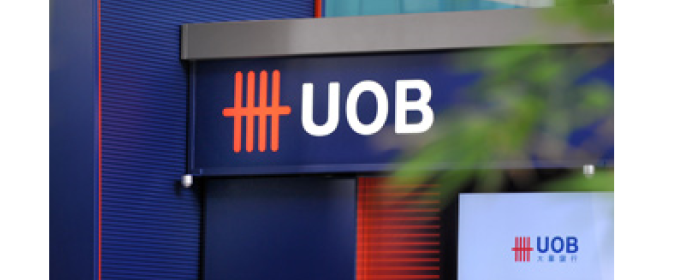Finance
UOB Asset Management (Taiwan) Launches Taiwan’s First S-REIT Fund to Help Retail Investors Seek Income Growth amid Low Interest Rate Environment

UOB Asset Management (Taiwan) (UOBAM (Taiwan)) has launched the United S-REIT Income Fund to offer retail investors in Taiwan investment opportunities in Singapore-listed real estate investment trusts (S-REITs). The United S-REIT Income Fund is the first S-REIT fund in Taiwan and its initial offering period will close on 24 July 2020.
In times of market uncertainty, the relatively low price correlation of REITs with major asset classes makes them a good investment tool to diversify portfolio risk. REITs are also considered more defensive than equities as they are less volatile and generally have higher returns to risk. In addition, they provide retail investors an opportunity to own a portfolio of professionally-managed, quality real estate assets which may otherwise not be available for investments. Through the capital growth and steady rental stream of these underlying assets, REITs provide retail investors with regular income via dividend distributions.
As at 31 May 2020, Singapore’s REIT market was among the world’s largest with a total market capitalisation of S$98 billion1 . S-REITs have an average dividend yield of 7.2 per cent and an average 10-year annualised total return of 8.3 per cent2 , which are among the highest3 in the global REIT market. Compared with other asset classes, S-REITs also offer relatively stronger returns, especially amid the current low interest rate environment4 .
Mr William Wang, Chief Executive Officer of UOBAM (Taiwan), said, “S-REITs are attractive investments due to their strong fundamentals, including reputable sponsors, sound balance sheets and low debt levels. While their recent price performance was affected by the impact of the COVID-19 pandemic, their current valuations present buying opportunities and we are also optimistic of their long-term growth prospects.”
“In terms of sub-segments, we are positive on industrial S-REITs, a key component of the S-REIT market. In particular, industrial S-REITs with logistics assets will ride on the growing demand for e-commerce warehouses and distribution centres as consumers increasingly turn to online shopping for greater ease and convenience. The expanding digital economy, coupled with more people working from home during the pandemic, has also spurred the increasing need for cloud storage and data centres. We are also positive on the long-term outlook for retail S-REITs as economic activities gradually resume and consumers’ footfall at malls progressively return to pre-pandemic levels.
“Through the United S-REIT Income Fund, retail investors will gain access to quality S-REITs through a single fund. The Fund aims to provide a monthly dividend payout and we are confident that it will meet the demand from local retail investors for yield-based fund investments,” Mr Wang said.
The United S-REIT Income Fund will have more than 60 per cent of its portfolio allocated to S-REITs to maximise the potential for capital appreciation and returns, with the balance to be invested into quality global REITs. The Fund has a risk rating of ‘RR4’5 , which indicates moderate to high-risk yield-driven investments in developed markets assets that may be susceptible to significant market movements.
The adviser of the United S-REIT Income Fund is UOB Asset Management Ltd (UOBAM), which is headquartered in Singapore and has more than 30 years of investment and fund management experience.
Mr Wang said, “UOBAM (Taiwan) will continue to tap the expertise of our parent company, UOBAM, and our in-depth understanding of the local market to develop and to offer new funds that provide Taiwanese investors with investment opportunities across Asia.”
About UOB Asset Management (Taiwan) Ltd
Headquartered in Singapore, UOB Asset Management Ltd (UOBAM) has been operating in Taiwan since 1997. UOBAM (Taiwan), a wholly-owned subsidiary of UOBAM, obtained the Securities Investment Trust Enterprise (SITE) licence in Taiwan in 2016 – the first fully foreign-owned fund management company to do so since 2001. To meet the needs of investors, UOBAM (Taiwan) has since launched several innovative funds, including first-in-market solutions such Taiwan’s first onshore Islamic fixed income fund, the United Emerging Market Debt (EMD) Fund 2023, and the first trigger term fund, the United 5 Years Trigger EMD Term Fund.
1 Source: Data from Bloomberg and the Singapore Exchange (SGX) as published in Chartbook: SREITs & Property Trusts, SGX Research, June 2020.
2 Source: Data from Bloomberg and SGX as published in Chartbook: SREITs & Property Trusts, SGX Research, June 2020.
3 Source: Bloomberg data based on the S&P Global REIT Index as at 31 May 2020.
4 As at 31 May 2020, the dividend yield of the FTSE ST REIT Index, which includes 37 of the 44 S-REITs, was 4.7 per cent, compared with 4.2 per cent of the Taiwan SE Weighted Index. Source: Data from Bloomberg and the SGX as published in Chartbook: SREITs & Property Trusts, SGX Research, June 2020.
5 The risk return (RR) rating system for investment funds was developed by the Bankers Association of the Republic of China. Ratings range from ‘RR1’ to ‘RR5’, denoting the potential low to high risks of investments.


















































